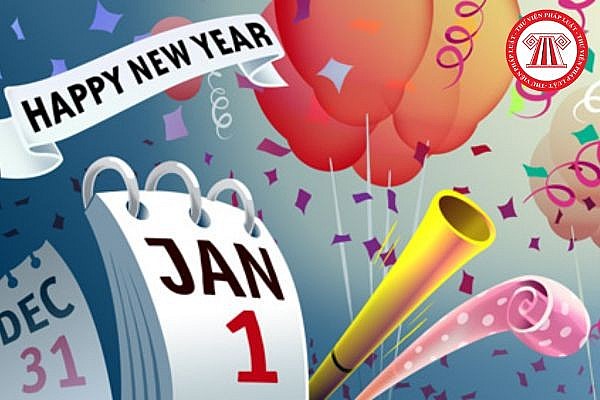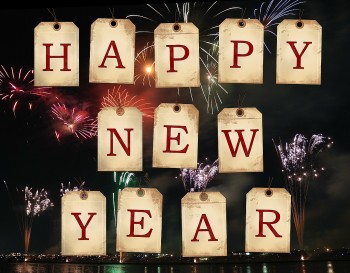Why does the New Year begin on January 1st?
 Top 10+ Luckiest Foods On New Year’s Eve You Should Try Top 10+ Luckiest Foods On New Year’s Eve You Should Try |
 Top 10 Weirdest New Year Traditions In The U.S Top 10 Weirdest New Year Traditions In The U.S |
 |
| Why Does New Year Start on January 1st |
January is about more than just holiday shopping burnout and chilly weather. It also signals the beginning of a new year, which presents the chance to start over and make resolutions that will help you achieve some long-simmering objectives.
But have you ever given it any thought as to why January and the new year are associated with each other in the first place? The explanation is nuanced and involves a number of noteworthy historical personalities.
Astronomers claim that people have observed various new year's days throughout history.
In the majority of Western civilizations, January 1st has gained global popularity.
However, things might have turned out differently for humanity over the last two millennia, and we might have greeted the new year at any point.
The first known New Year's celebration was held in the Mesopotamian civilization 4,000 years ago during an 11-day festival known as Akitu, which fell on the spring equinox.
This is the period, towards the end of March, when the days and nights are equal, and it is a fairly common choice for many civilizations to start a new year. The autumn equinox, which occurs close to the end of September, was chosen by other societies, such as the Phoenicians, Egyptians, and Persians. The Greeks, on the other hand, selected December for the winter solstice.
Of all those well-liked options, why did January 1st emerge as a favorite for New Year's Day in the modern era?
| The late British historian A. F. Pollard in 1940 raised the question of whether anything was being missed, when the New Year's Day fell very close after the winter solstice - a time in astronomy that is So many ancient civilizations worshiped? There is evidence that many cultures celebrated their New Year and other festivals around this time, when the period of sunlight is at its lowest and begins to lengthen, heralding the end of the world. the return of spring and a new crop. It is a good time to look back at one cycle and look forward to the new, like the two faces of Janus. According to Pollard, this connection "suggests at least one possibility that New Year's Day may have originated from some pre-Roman race". Perhaps, every time we start to step out early on January 1 every year, we are passing on an older and deeper legacy of humanity. |
The Perplexity of Roman Calendar
The Romans are at the start of the tale. They did not connect their year with a specific astronomical event, in contrast to their forebears. Rather, the calendar of this republican establishment was determined by taking the election date of the consuls, who were then a two-person body, as its highest body.
The first day of this new year was supposedly originally designated as the March Ides, or the 15th of March, a month the Romans named after the god of war, Mars. Nevertheless, in 154 BC, the senate chose January 1st to elect two consuls slightly earlier in order to quell the uprising in Spain.
But there's still a problem with the Roman calendar: the 10 days that are missing. The Roman calendar only had 355 days, which is less than one earth orbital cycle (the sun was actually returning to its previous position in the sky at that time, since people were obviously unaware that the earth moved around the sun).
The Roman priests implemented Mercedonius, an extra month, to make up for this. It was supposedly added to make up for the time lost when the solar year's cycle and the calendar differed. But in the end, the high priests used this as a tool to corrupt others by extending their own time limit with their allies by tampering with the calendar.
Julian Revolution
Julius Caesar faced a time crisis in addition to a civil war when he ascended to power in Rome in 46 BC. At that time the Roman calendar had become hopelessly confused after centuries of revision. The dictator invited Sosigenes, an Alexandrian philosopher he had met during a military campaign in Egypt (and who was also involved in a romantic relationship with the Egyptian queen Cleopatra), to help him resolve this issue.
Taking inspiration from his native land, Sosigenes created the first 365-day calendar. The introduction of a leap day every four years to account for the solar year's marginally longer duration than 365 days is one of its highlights. Egypt's Ptolemy III Euergetes made an attempt to incorporate it, but was unsuccessful since his subjects disapproved of this unusual addition.
Rome's new calendar kept many aspects of the old one, such as the 12-month system that gave rise to their names (though August was renamed after the emperor and July was later renamed after Julius Caesar). Following him was Augustus, the next emperor. Moreover, January 1 is retained as the New Year's date. This is done in honor of the god Janus, the two-faced deity that represents the beginning, as well as to uphold tradition.
The Julian calendar (named after Julius Caesar) began in 45 BC, the year that followed 46 BC, a year notable for having only 445 days at the end. For sixteen centuries, the Western timekeeping system was dominated by the Roman model, which was a legacy left to succeeding generations. Still, it's not flawless in the end.
Turn the Clock Back
The calendar's primary mistake, as previously indicated, stems from its assumption that a year contains, on average, 365.25 days. More accurate results from later calculations came out to be 365.2422 days. That fraction represents five hours, forty-eight minutes, and forty-six seconds—not the full six hours.
Throughout 1,600 years, the Julian calendar essentially advances by 11 minutes annually. This put Pope Gregory XIII in an awkward position by delaying the 16th century by at least ten days. Easter is a very significant holiday for all Christians, including Catholics, and is observed on March 20 or 21. It is based on the first full moon following the spring equinox.
The vernal equinox, however, actually occurs later each year than it appears on the calendar. The pope realized that Catholics would later celebrate Easter outside of the official season if no changes were made.
The Pope made the decision to act in 1582. In order to convert the Julian calendar to the Gregorian calendar (named after the Pope), astronomers eliminated ten days from that year. Simultaneously, they modified leap year calculations to conform to modern standards.
Another rule is that there won't be any leap days in century years (years that are typically divisible by four are leap years, such as 1,700, 1,800), with the exception of years that are divisible by 400. This indicates that while 1,900 and 2,100 are not leap years, 2,000 is.
Following the fall of the Roman Empire, New Year's festivities persisted throughout Europe during the Middle Ages. To comply with their religious beliefs, many Catholic nations move it to March 25 (the Feast of the Annunciation) or Christmas. Gregory put an end to those differences when he released a new calendar and established the modern January 1 as the start of the new year.
Time Synchronization
The accuracy of the new system surpassed that of the old system once more. This was quickly accepted by the majority of Catholic regions of Europe, including Spain, Portugal, France, and Italy. However, some other nations have long refused to do so.
But due to its indisputable accuracy, the Gregorian calendar progressively approaches and transforms every culture. In 1752, after England and the American colonies came to terms with the modification, September 2 was rescheduled to September 14 (the required shift at the time was 11 days). Some even modify their birthdays to correspond with the new calendar. For a longer period, many other nations opposed this change.
| Naturally, some Gregorian-using nations continue to observe New Year's Day in accordance with their customs (China, Vietnam and a few Eastern nations continue to observe Lunar New Year in accordance with the lunar calendar). However, based on calculations made today, the first of January is ultimately the most common date. This is the outcome of a historical period spanning more than two millennia. |
 30 Best Bible Verses For New Year 2024 30 Best Bible Verses For New Year 2024 Here are some Bible verses that can help you stay on track if you're unsure if you'll stick to your resolutions this year!View The Top ... |
 Self-Rewarding Gift from 12 Zodiac Signs to Recharge in New Year 2024 Self-Rewarding Gift from 12 Zodiac Signs to Recharge in New Year 2024 What is the gift the 12 zodiac signs give themselves in early 2024? The following are just references, however, you can also have your own ... |
 Top Most Popular Gift Trends for New Year 2024 Top Most Popular Gift Trends for New Year 2024 The gift trend for the New Year 2024 is not simply giving materialistic products, but also contains emotions and appreciation in relationships, according to the ... |























